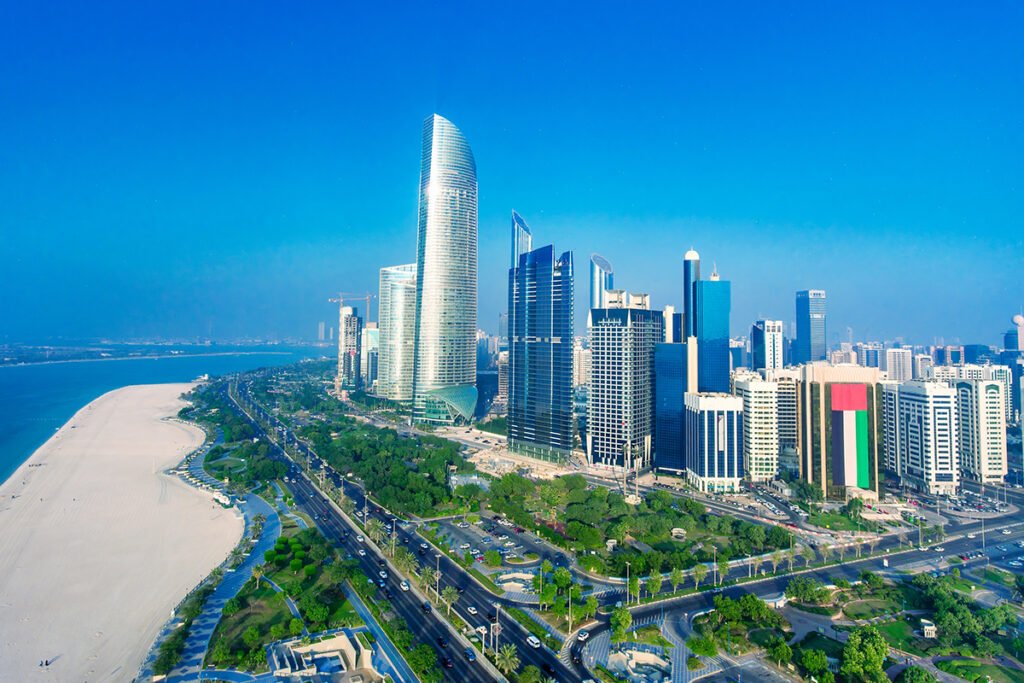Abu Dhabi’s economy continues to show strong momentum in 2025, with Gross Domestic Product (GDP) reaching AED291bn ($79.2bn) in the first quarter—a 3.4 per cent increase compared to Q1 2024, according to the Statistics Centre – Abu Dhabi (SCAD).
Driving this growth is the emirate’s expanding non-oil economy, which surged 6.1 per cent year-on-year to AED163.6bn ($44.5bn).
For the first time ever in a Q1 period, non-oil sectors contributed 56.2 per cent of total GDP, underscoring Abu Dhabi’s continued economic diversification efforts.
Abu Dhabi economy
The oil sector accounted for the remaining 43.8 per cent, or AED127.4bn ($34.7bn).
Ahmed Jasim Al Zaabi, Chairman of the Abu Dhabi Department of Economic Development (ADDED), said: “Day after day, Abu Dhabi’s economy is reaffirming the success of the emirate’s long-term strategy and the effectiveness of timely policies and measures to address changes and challenges in regional and global landscape.
“Our Falcon Economy orchestrates multi-dimensional strategies across different sectors, enabling us to build synergies and work in tandem to achieve Abu Dhabi and the UAE’s strategic objectives”.
The manufacturing sector was the largest non-oil contributor, adding AED28.5bn ($7.8bn) in value—a 5 per cent year-on-year increase. It now represents 9.8 per cent of the emirate’s GDP. As part of this, new industrial licences rose 4.7 per cent and the number off factories shifting to production surged 65 per cent, reflecting sectoral expansion
Construction posted the strongest growth among non-oil sectors at 10.2 per cent, reaching AED27.5bn ($7.5bn) and contributing 9.4 per cent to total GDP.
This expansion is supported by continued investment in housing, infrastructure, and AI-powered permitting systems such as the Binaa platform.
The finance and insurance sector grew 9.1 per cent to AED19.6bn ($5.3bn), buoyed by a 43 per cent increase in registered institutions at Abu Dhabi Global Market (ADGM) and a 33 per cent rise in assets under management.
Foreign investment into Abu Dhabi Securities Exchange (ADX) hit AED8.5bn ($2.3bn), up 151 per cent year-on-year and ADX market capitalisation crossed AED2.93tn ($797.8bn), a 3.2 per cent increase.
Other examples of the diverse non-oil growth across sectors, include:
- Wholesale and retail trade: AED16bn ($4.4bn), up 3.6 per cent
- Real estate: Up 6.7 per cent
- Transport and logistics: Grew 7.5 per cent, affirming Abu Dhabi’s role as a logistics hub
- Health sector: Up 5.2 per cent, aligned with quality-of-life initiatives
- Professional and technical services: Contributed 10.3 per cent, driven by rising demand for knowledge economy jobs
- Arts and entertainment: Grew 8.4 per cent, reinforcing tourism and culture’s growing impact
Abu Dhabi’s population climbed to 4.14m in 2024, up from 3.8m in 2023. This demographic surge complements the emirate’s robust non-oil expansion, supporting demand for housing, public services, and jobs.
The emirate’s AED13bn ($3.5bn) Digital Strategy (2025–2027) aims to position Abu Dhabi as the world’s first fully AI-native government by 2027. By automating all public sector operations, the plan will boost efficiency, enhance service delivery and stimulate innovation-led economic growth.
Abdulla Gharib Alqemzi, Director General of the Statistics Centre, said: “The first quarter of 2025 reaffirms the strength, adaptability, and maturity of Abu Dhabi’s economic model. Our transition toward a diversified, knowledge-based economy continues to gain momentum, with high-growth sectors like manufacturing, construction, and financial services driving sustainable expansion”.


